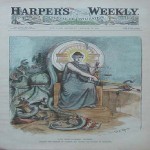 Surely there are more pressing things to do at this hour than scan my Google Reader headlines (well, actually, I’ve become a Feedly user, but the Feedly feed comes from Reader, mostly).
Surely there are more pressing things to do at this hour than scan my Google Reader headlines (well, actually, I’ve become a Feedly user, but the Feedly feed comes from Reader, mostly).
Nonetheless, I couldn’t pass up today’s essay by Seventh Circuit Judge Richard A. Posner, on Foreign Policy’s website. Titled “The Real Danger of Debt,” the article is described as having been “adapted from” Judge Posner’s book, “A Failure of Capitalism: The Crisis of ‘o8 and the Descent into Depression.” In the article, Posner describes the “deeply wounded economy” of the United States, explaining that, essentially, “private savings are being borrowed by the government, combined with the government’s foreign borrowing, and then transferred to households to enable them to maintain their accustomed level of consumption. People are saving more, but government borrowing overwhelms their saving, with the result that aggregate saving — public plus private — is negative.”
He goes on to outline, in his usual clear, bracing style, the steps by which this state of affairs could lead to rising interest rates, instability in the value of the dollar, the loss of the dollar’s status as the chief international reserve currency, increased savings rates, and decreased economic growth:
As real interest rates rise as a consequence of a growing public debt and declining demand for the U.S. dollar as an international reserve currency, U.S. savings rates will rise and, by reducing consumption expenditures, slow economic activity. Economic growth may also fall as more and more resources are poured into keeping alive elderly people, most of whom are not highly productive members of society from an economic standpoint. The United States may find itself in the same kind of downward economic spiral that developing countries often find themselves in.
This ominous prediction of where current trends may lead us is dramatic in itself (although, sadly, much less dramatic than it would have seemed in 2007). But rather than the worrisome warnings about a second economic depression, the passages that struck me most are the ones characterizing the current political situation in the United States.

 The Supreme Court decision in
The Supreme Court decision in